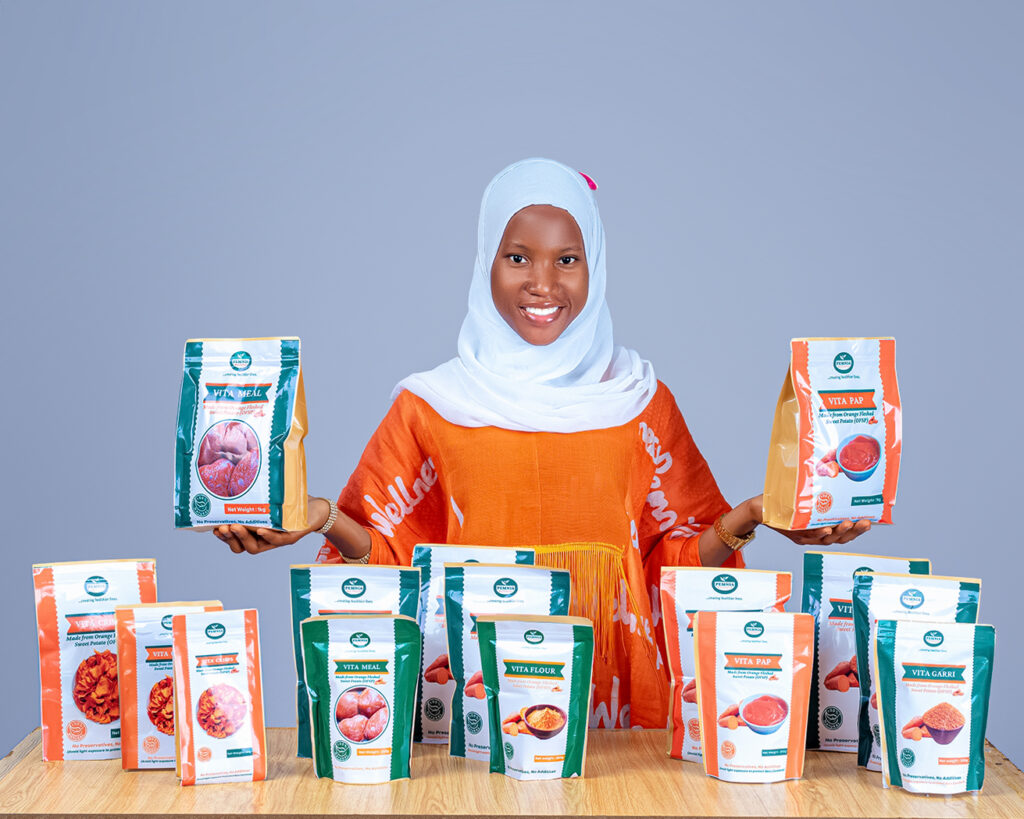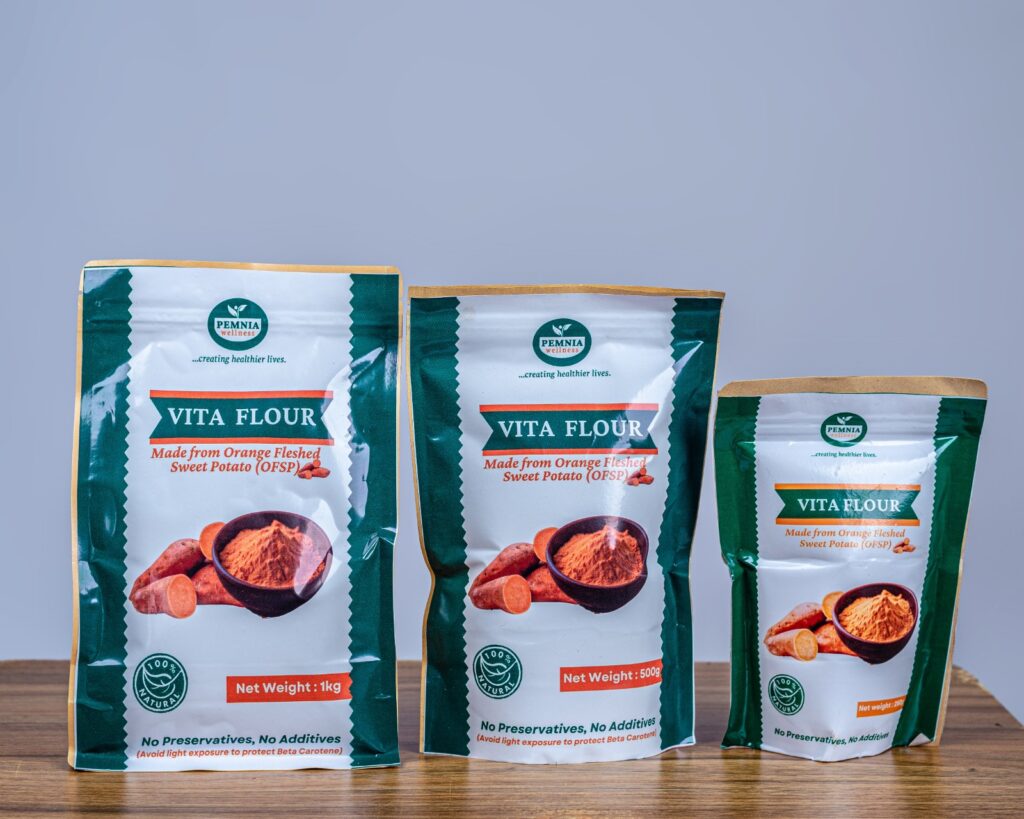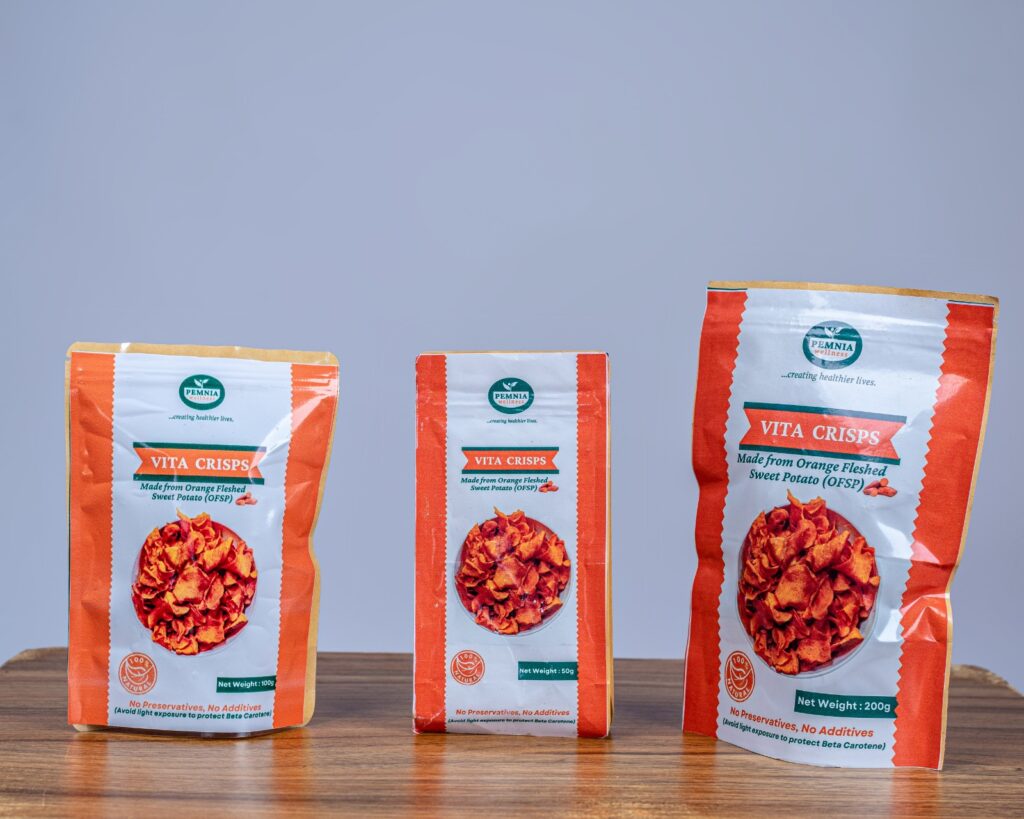
By Jesutofunmi Robinson
When PEMNIA WELLNESS products reach households in Nigeria today, from orange-fleshed sweet potato (OFSP) flour in school meals to vitamin A-rich crisps in community shops, they carry the vision of one young woman who turned her curiosity into impact.
Opeyemi Adebisi’s journey began in 2022 with a training on OFSP production and value addition organised by the Youth in Agribusiness Compact of the Technologies for African Agricultural Transformation (TAAT), also known as Empowering Novel Agribusiness-Led Employment (ENABLE-TAAT), led by the International Institute of Tropical Agriculture (IITA).
“That training ignited my passion. I saw how this crop could fight malnutrition and improve livelihoods,” she said.
Following the training, she was mentored by the ENABLE-TAAT Business Development Expert, Idowu Osun, who provided access to her first OFSP tubers, guidance on product development, opportunities to exhibit her products at events and programmes, and introduced her to the TAAT OFSP Compact.
What began as small-scale trials soon evolved into a registered enterprise, PEMNIA WELLNESS, which now produces flour, crisps, garri, and meals for schoolchildren, mothers, diabetic patients, NGOs, and health-conscious consumers.

“TAAT didn’t just introduce me to OFSP; it gave me the tools, network, and confidence to build something that makes a difference,” she said. Over time, demand has grown steadily, with interest from both local and international markets.
Beyond TAAT, Aminat has continued to sharpen her technical knowledge and entrepreneurial capacity by participating in other industry training and programs such as the IITA Youth in Agribusiness food processing and packaging training, the Tony Elumelu Foundation Entrepreneurship Program, and the Farmers for the Future Program by BATN Foundation. These platforms have strengthened her capacity to innovate, expand, and scale her business sustainably.
Her work goes beyond processing.
By connecting smallholder farmers to markets, educating communities on the nutritional value of OFSP, and empowering women and youth in the value chain, she has built a business that not only addresses malnutrition but also creates employment opportunities.
Today, PEMNIA WELLNESS has achieved key milestones, including National Agency for Food and Drug Administration and Control (NAFDAC), Standard Organisation of Nigeria (SON), and Food and Drug Administration (FDA) approvals, affirming the quality and safety of its products.
Looking ahead, she envisions scaling production capacity, expanding into African markets, and utilising technology for traceability and nutrition education, while increasing the participation of women and young farmers in the OFSP supply chain.
Her story is proof that with the right support, a single training can ignite an idea that transforms communities. As PEMNIA WELLNESS grows, so does the promise of a healthier, nourished, and more empowered generation.












